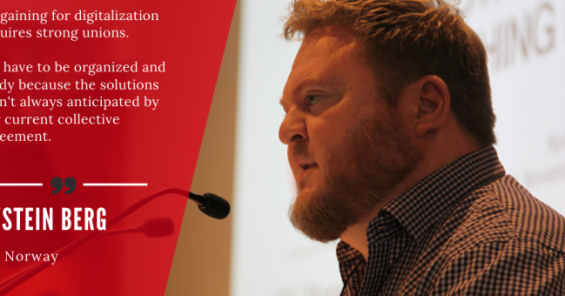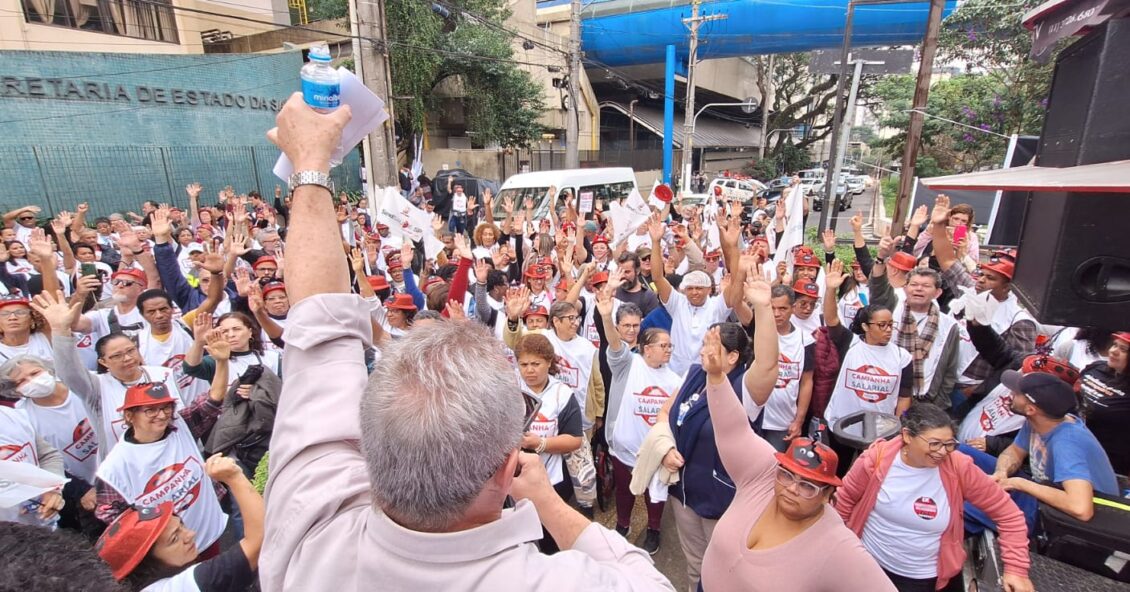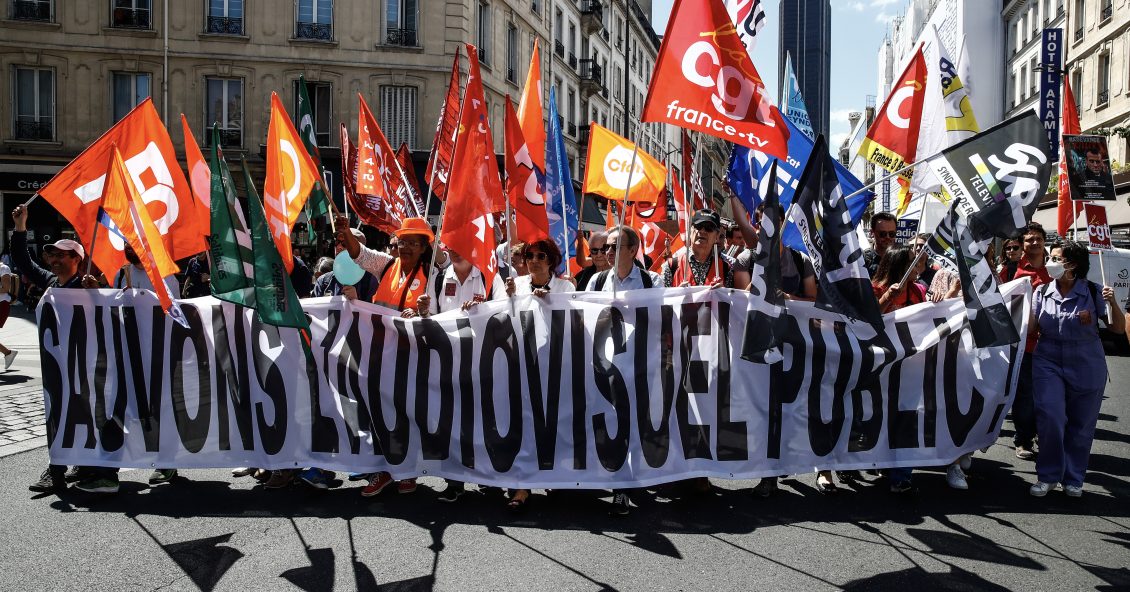The effects of digitalization will only grow in the coming years, and this week, UNI Global Union held a forum to share best practices to mitigate digitalization’s perils while maximizing its promises. Monday’s forum comes one day before the start of UNI’s World Executive Board meeting.
The timing of the meeting and participation from so many of UNI’s executive leadership shows that securing workers’ rights in a changing world is a pressing concern for the global labor movement. Digital issues—downsizing, upskilling, automation, for example—have emerged as high-priority subjects at the bargaining table of many unions, and a key message that emerged from the forum is that unions must be ready for the challenge.
“No one should be left behind in the digital transition and the appropriate tool to achieve this goal is collective bargaining,” said Alke Boessiger, UNI’s Deputy General Secretary. “Collective bargaining is the key tool we have to ensure justice and equality for all workers in a digitalized world and to secure their fundamental rights at work.”
Participants heard from Unite! The Union about the trainings and preparation that it is doing at every level of the union to strengthen organizing and bargaining in the digital age. SASBO in South Africa told about the innovative strategies to grow their power while their membership in the financial sector is threatened by automation.
Norwegian union HK gave an inspiring presentation on saving—even improving—jobs for warehouse workers after their employer automated their facility.
“Bargaining for digitalization requires strong unions,” said Øystein Berg from HK. “We have to be organized and ready because solutions are not always anticipated by our current collective agreement.”
UNI ICTS and P&M presented their innovative work on the right to disconnect, and FO from France gave insights to how the right to disconnect is being used by unions on a national level.
The President of UNI ICTS, Andy Kerr from the CWU in the UK described how UNI Europa is developing a trade union approach to Artificial Intelligence.
In the United States, the CWA told us about the total surveillance that call center workers labor under, and how the union has been successful in negotiating for more control over their data.
“We have seen the difference a union can make on this issue,” said ICTS President Kerr. “For example, call center workers at the bank Santander in the UK aren’t under the same invasive monitoring as the Santander workers in the United States, who do not have a union yet.”
Christina Colclough, Director of Platform and Agency Workers, Digitalization, and Trade, discussed an exciting new UNI project, Spotlight, which will allow workers to keep detailed information about their working conditions and keep control of their data.
President of UNI MEI, Matt Loeb, how his union IATSE is implementing for theatre ad TV production workers even though his membership would not be categorized as “typical” because they do not, and never have fallen, into traditional employment patterns.
“We have to set regional, national, and international standards across our industries. This improves conditions while preventing workers and local unions from being forced to compete against each other,” said Loeb said.
To wrap up the meeting, UNI General Secretary Christy Hoffman said, “Digitalization is not an issue of the future but an issue of now. It is creating more wealth for companies, and that is one reason why inequality is growing. Workers are not getting their fair share. We will learn from the examples we’ve discussed today to bargain for a just digital transition, and what we cannot fix at the bargaining table, we will fix by changing the rules.”
Over the next few days, UNI’s World Executive Board will highlight the successes of the past year while solidifying the organization’s plan to win for workers in 2020.


